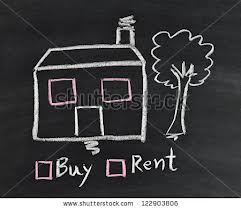There are many questions surrounding how agents get paid, what they get paid, etc. It is a common curiosity of the general public and I think that it is important to inform folks of what we make, how we make it, and where it all goes. These are largely examples and of course there are exceptions to the “rule”, but here is my best shot at laying it out there.
How a Real Estate Agent gets paid:
First, real estate agents are paid commission only. That means no salary, no benefits (health insurance, etc), no company car, no expense reimbursement. Additionally, we are not employees of a company, we are independent contractors, so that means higher taxes (self-employment taxes are higher) and quarterly taxes must be filed.
Second, in most cases, agents commission is split in some way with their broker (the agency with which their license is affiliated).
Lastly, to a varying degree (often depending on how much they pay their office in the way of fees or commission split), agents pay for all or nearly all of their own business expenses and marketing.
Where the commission goes:
In general, agents have some sort of commission split with their own broker and with the cooperating broker (this would be a buyer’s agent if one exists in the transaction). What that means is when a listing is taken at (for example 6%), 3% stays with the listing side, and 3% will go to the selling (buyer’s broker) side.
The 3% paid to the listing broker is then divided between the brokerage and the listing agent…to the tune of anywhere from 50-50 to 90-10…in some cases an agent keeps 100% but pays a large office fee to the agency. To split the difference, we will use the example of a 70-30 split (70% to the agent and 30% to the brokerage firm). That 70% to the agent is what is used towards marketing, operating expenses, insurance, taxes and then profit for services rendered (the amount the agent takes home for their family to live on). Of the 30% to the brokerage, much of it goes to their own operating expenses, and the large scale national marketing that it takes to properly market listings through syndication partners.
If on the buyer’s side, the 3% will be split similarly as to the listing side, but the agent expenses are more for time (often outside of normal business hours) expended, gas and other operating expenses just to be able to legally operate. So actually, the listing agent spends more money, but makes the same amount as the buyers agent. But often the buyer’s agent expends more time.
So while to a seller, 6% may be a large amount of the total sales price that they are paying, when you break it down, most of it goes towards the cost of doing business and the marketing of their home (if done properly and by a professional).
What are some of the expenses a Real Estate Agent has? I’m glad you asked…
Licensing Fees, Continuing Education Expenses, Association Dues/Fees, Multiple Listing Service Fees, Lock Box’s and fees to have lock box access, Signage, Fliers, Post Cards, Postage, Desk and/or Office Fees, Fuel costs, Websites, Online Marketing, Services such as photography, sign installation, in many cases an administrative assistant and/or showing/buyer’s agent, paper, ink, toner, all technology, and the list goes on.
What do agents actually do?
Open houses, calling prospects, following up with agents and potential purchasers or listing agents (depending on what side you are on), preparing (and paying for) marketing, meeting with clients to go over offers, feedback, etc, driving clients around to look at homes, preparing contracts, negotiating contracts, keeping timelines, knowing the laws that protect and govern the process, put out “fires”, manage the process, refer (and often pay for or at least coordinate and/or meet with) contractors and service professionals, know the market to properly price, show and sell homes, prepare comprehensive comparative market analyses and more…
And what does all of this offer a buyer or seller?
A professional who knows the process, knows the market, has the access and ability to show the available homes or market the home in a way that attracts as many purchasers as possible and advocates on your behalf for your largest investment (in most cases).
**Not all agents are created equal. There are agents who stick a sign in the front yard and you never hear from them again…those also happen to often be the ones who are willing to discount their commission. But this is why hiring an agent should be based on more than just the commission, it is what they will do to sell your home. At the end of the day what is the difference in a percent or two in commission if your house ultimately sells for less.
Hope this provides some helpful insight!






 , they know I love a VA Loan. VA loans are truly the best deal on the market (in my humble opinion)…and they do not have all of the problems that some agents and veterans think they do. The appraisal process can be a little more difficult, but only in the fact that they MAY require some repairs (such as fixing peeling lead-based paint…not such a bad thing to require) and a re-inspect if repairs were required, but more often than not, they do not require anything. They value the home just the same as a conventional appraiser and I have never seen a VA appraiser come in low on a property that was priced right. I digress…
, they know I love a VA Loan. VA loans are truly the best deal on the market (in my humble opinion)…and they do not have all of the problems that some agents and veterans think they do. The appraisal process can be a little more difficult, but only in the fact that they MAY require some repairs (such as fixing peeling lead-based paint…not such a bad thing to require) and a re-inspect if repairs were required, but more often than not, they do not require anything. They value the home just the same as a conventional appraiser and I have never seen a VA appraiser come in low on a property that was priced right. I digress…